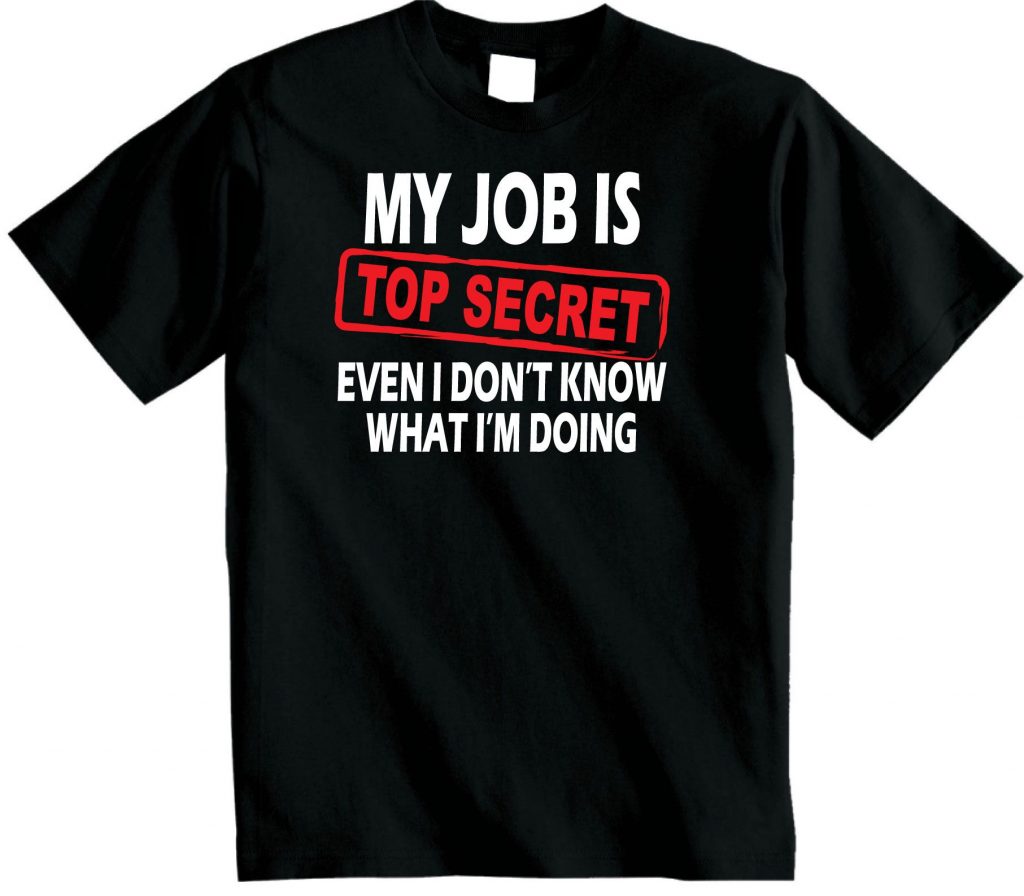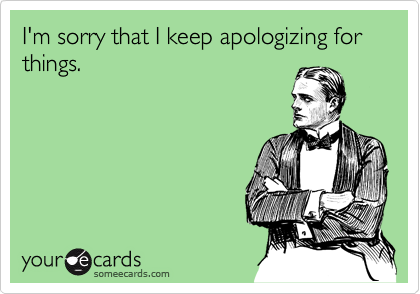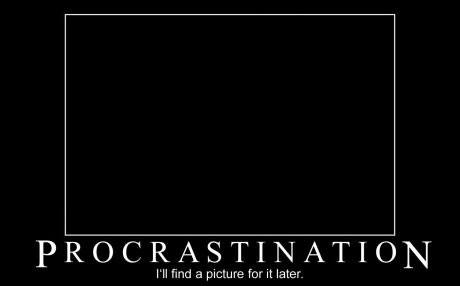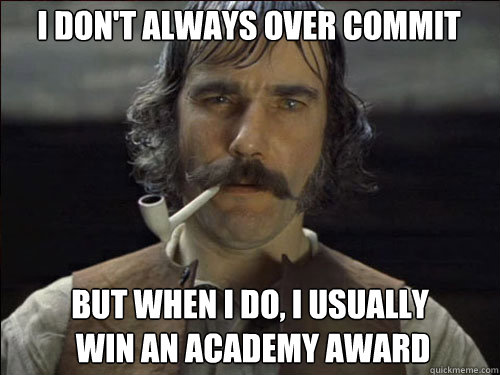So now that you know all about communication, feedback and emotions, how do you become extraordinary?
There are 2 golden pillars that can make you everyone’s bae. Not literally of course. But you get it.
- Ownership
- Pro-activeness
Today we discuss ownership then…
When your manager tells you to be responsible and accountable at work, you might be confused at what they mean. Your ability to be responsible and accountable is a direct result of the task you are assigned and your personal work ethic when you take ownership of your work product.
When you are hired for a job, your manager provides you with a list of your duties, also known as Key Responsibility Areas or KRAs. They'll tell you that it is your job to ensure the tasks on the list are completed when due.
While you can be assigned a variety of responsibilities, whether or not you are accountable depends on you. A person who demonstrates accountability takes the hit if they don't complete the task on schedule. When you refuse to be accountable, you'll place the blame on someone else for the project's failure. Here's some basic concepts associated with ownership down below:

Work Ethic and Character
Some people couldn’t care less about their work product. They slap together a report haphazardly or do the least amount of work they can just to get their salary. Instead of displaying a positive work ethic and character by taking personal pride in their work, they only do what is required of them and no more. People with solid work ethic and character take responsibility for the work they do. They demonstrate a willingness to not only ensure the job is done, but also accept responsibility for the results -- good or bad. They take their assigned duties seriously and go the extra mile to make sure the work is the best that it can be. When you have character and are accountable, you recognize that the quality of your work is also a representation of you.
Want to get updates when a new part of the People Skills Primer is launched? Subscribe here:
Not My Fault
The person at work that says, "It's not my fault," does not accept the liability for any results. She is not unlike the waitress who ignores your request for water by saying, "It's not my table." For example, instead of following up with other teammates to ensure the project is completed timely, the unaccountable worker forgets about the project the minute it leaves her desk. If the project's deadline is missed, she'll be sure to let everyone know that she did her part. A person who demonstrates accountability makes it a point to follow up with team members so that the project doesn't fall through the cracks.
Taking Ownership
In the book "The Oz Principle: Getting Results Through Individual And Organizational Accountability" authors Roger Connors and Tom Smith share that "taking personal accountability means making a personal choice to rise above one’s circumstances and demonstrate the ownership necessary for achieving desired results; to see it, own it, solve it and do it.” Accountability is something you choose to exhibit – it is not assigned to you.
What is accountability at workplace?
As an employee, being accountable means to complete the tasks you are assigned, to perform the duties required by your job, and to be present for your shifts in order to fulfill the goals of the organization. If tasks are not completed and functions of the job are not performed properly, then you will also be responsible for dealing with the repercussions.
Accountability in the workplace means:
- Being present for the required shift
- Completing any tasks that have been designated to you
- Being responsible for the specific duties that go along with your job
- Being consistent in doing the right thing in all aspects pertaining to your job
- Working together towards a common goal for the business
Personal Accountability in the Workplace
Personal accountability at work can encompass everything from you being accountable for yourself, making yourself indispensable, to managers and people in leadership roles showing personal accountability in order to foster an environment of accountability in the office with their employees. If you are not in a management role, demonstrating accountability at work will prove that you are a valuable asset to the company and it will make you an indispensable commodity.
How To Be More Accountable
Personal accountability isn’t a trait that people are born with, it’s a skill that you can learn. Use the strategies below to become more accountable.
-
- Know Your Role

It’s hard to be personally accountable if you're not clear what you’re responsible for. If this is the case for you, ask your boss to provide a job description that sets out your tasks clearly. If responsibilities are unclear within the team, ask your manager to outline who is responsible for different team tasks, and to share this information with everyone involved.
- Be Honest
 [caption id="attachment_278070" width="400"] 'I need help in being able to ask for help.' - 'Okay, you need help.'[/caption]
[caption id="attachment_278070" width="400"] 'I need help in being able to ask for help.' - 'Okay, you need help.'[/caption]Success in life only comes when you’re completely honest with yourself, and with others. This means setting aside your pride, and admitting when you’ve made a mistake. Learn to ask for help if you’re struggling, so that you don’t let others down.
- Say Sorry
Accountability doesn’t stop with honesty. If something has gone wrong and you were responsible, then you need to apologize.
Focus on making amends when you apologize – show what you’ll do to make the situation right. This allows everyone involved to move on, and helps them focus on the end goal, rather than the problem.
- Use Time Wisely
Procrastination is a common way to avoid responsibility, as it delays dealing with a problem, meaning that someone else may solve it instead. Your colleagues may feel that they can’t rely on you, and this will affect your professional reputation.
You can overcome procrastination by identifying why you do it. Is the task dull? Do you lack information or resources? Or is there some other cause? Once you understand why you put things off, you can take steps to fix the problem.
Next, practice good time management, so that you make time for what’s important. Use tools such as Eisenhower's Urgent/Important Principle or Action Programs to manage your time more efficiently. You can find it here. - Don't Over commit
 When you take on too much, something will eventually fall through the cracks. That means that you've let someone down.
When you take on too much, something will eventually fall through the cracks. That means that you've let someone down.
So, before you agree to a new task, think carefully about your schedule and whether you'll be able to fulfill the task to the best of your ability.
- Make Changes
Accountability can open up powerful learning opportunities. When something hasn’t gone to plan, ask for feedback, and look for ways to do the next project differently in the future.Reflect on your actions, too: spend some time at the end of each day running through these simple questions:- What could I have done differently today?
- How can I build this change into my job from now on?
- Know Your Role
In time, you’ll build new skills and better ways to deal with difficult situations.
Key Takeaways:
- Being responsible and accountable is not a measurable skill, but the results will reflect in the long run in terms of how much you will learn and grow, and the respect and admiration (and envy) you will command from people around you.
- Never do anything just for the sake of finishing it; it's a waste of resources and time, and an insult to your capabilities. (Bonus: More Than Fine - Switchfoot)
- It's always better to over-deliver than to over-commit.
- Use the chapter on feedback, and practice how to use it to improve your work.
In the People Skills Primer, you'll get a crash course on how you can take charge of your internship or your new job. Here's the different aspects you'll get to know more about in the coming chapters.
- Communication With The Boss
- Cardinal Rules Of Communicating With Colleagues
- How To Do Your Emails Right
- Communicating With A Client
- Communicating With A Vendor
- Emotional Intelligence
- Dealing With Criticism & Feedback
- How To Be Extraordinary At The Workplace
- Own Your Career
